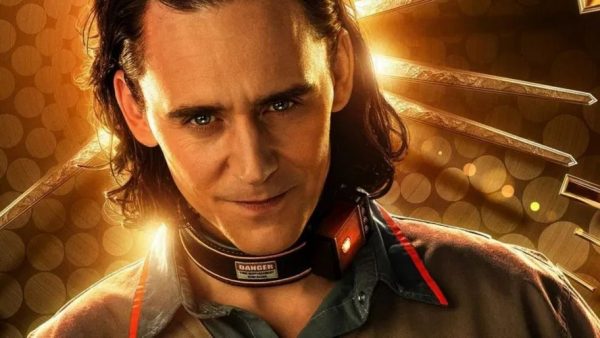Martin Carr reviews the second episode of Marvel’s Loki…
This is where the time jump shenanigans kick off. Following the revelation that Loki is tracking himself through time in various guises, things take an interesting turn. Shadowy figures cloaked in cowls skulk ominously, while Mobius works hard to keep his charge on the straight and narrow. Soul searching is in abundance, as Loki gets to ruminate upon past transgressions and the series morphs into something unexpected.
Story elements are constantly unpacked, locations are slowly introduced and Loki becomes a time travelling detective story in the making. Different eras are embraced, Pat Benatar assaults the senses and more facets of TVA business are brought to light. To all intents and purposes this is still fifty minutes of solid world building, with some set piece diversions thrown in. The Terry Gilliam vibe continues unabated, while Owen Wilson, Gugu Mbatha-Raw and Tom Hiddleston continue having a blast.
To an extent the awe has dissipated as audiences find their feet, but the arrival of Sophia Di Martino definitely brings something new to the party. Channelling the impish quality which makes up areas of Loki’s persona, she is fleeting yet effective. Either scorching TVA operatives, or skipping through time portals with aplomb, having a feminine variant adds a new dynamic. At present there is little to go on beyond that end credit cliffhanger, but with only four episodes left in this limited run Loki is due to benefit from her presence.
Elsewhere, more is made of the relationship between Mobius and Ravonna as both are given more screen time. Easter eggs litter the shelves of Ravonna’s TVA hub and Mobius is intentionally seated beneath her. At present their dynamic is defined by conflict, hierarchy and necessity. A combination destined to change in good time, as the God of Mischief deviates from his preordained timeline and follows himself down a rabbit hole.
Beyond the character beats, inspired production design and world building antics, Loki really leans into different theological debates. Time passing is a constant headache in this series, as such things run both ways. By being able to manipulate minutes, truncate passing hours or stretch seconds out forever, momentum begins to alter accordingly. It essentially means that all bets are off when it comes to linear story telling. A sequence of events can now come in any order, back track on itself or remain in stasis until called upon. That is where Loki will either triumph universally, or fail in spectacular fashion.
As Marvel continue to incorporate phase four elements and normalise the definition of a multiverse for audiences, people may look back at Loki as a valuable stepping off point. A genuine cross over between the film and television arms, that WandaVision partially approached in its final moments. However, regardless of the long game being plotted, there is no doubt that this second episode only consolidates what the premiere kicked off. A welcome return for everyone’s favourite Asgardian anti-hero.
Martin Carr














